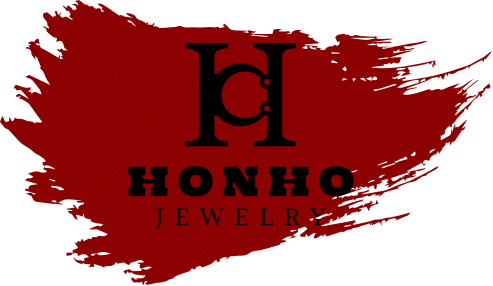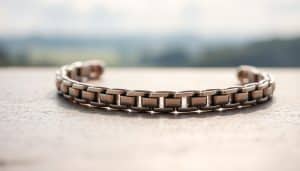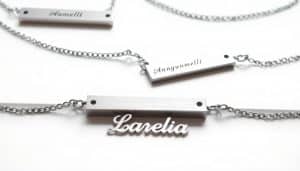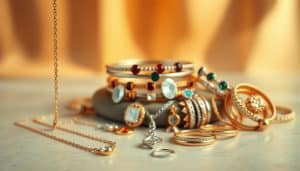Where to Get Jewelry Appraised: Expert Tips
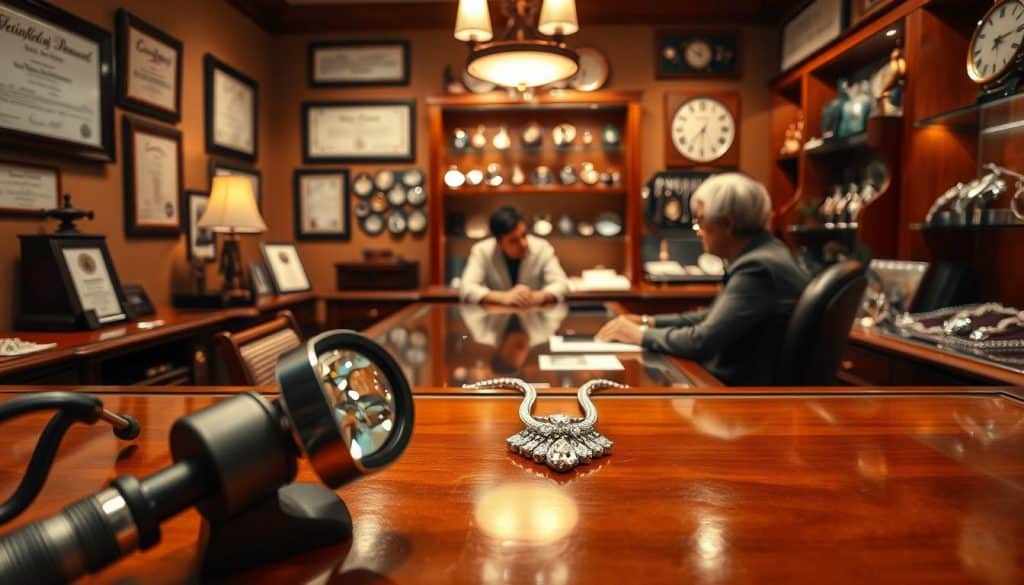
Where to Get Jewelry Appraised: Expert Tips
At HonHo Jewelry, we understand the significance of accurate jewelry valuations. Determining the value of jewelry is crucial, especially for insurance purposes or when inheriting heirlooms. An appraisal provides an objective assessment of a piece’s value, helping you make informed decisions.
Whether you’re looking to insure your jewelry or simply curious about its worth, finding a reliable appraiser is essential. In this article, we’ll share expert tips on where to find the best jewelry appraisers and what to expect from the appraisal process.
Key Takeaways
- Understand the importance of jewelry appraisals for insurance and inheritance purposes
- Learn how to find reliable and expert jewelry appraisers
- Discover what to expect from the jewelry appraisal process
- Get tips on preparing your jewelry for appraisal
- Find out how to verify the credibility of a jewelry appraiser
Understanding the Importance of Jewelry Appraisals
The value of jewelry can be complex to determine, making appraisals an indispensable resource. At HonHo Jewelry, we understand that jewelry is not just a valuable possession but often holds sentimental value as well. Therefore, getting a professional appraisal is crucial for various reasons.
What Is a Jewelry Appraisal?
A jewelry appraisal is a detailed evaluation of a piece of jewelry’s value, considering factors such as material, craftsmanship, and market demand. It’s a comprehensive assessment that provides an accurate estimate of the jewelry’s worth. According to industry experts, a thorough appraisal involves examining the item’s characteristics, such as the type of metal, gemstone quality, and overall condition.
Key components of a jewelry appraisal include:
- Identification of the materials used
- Assessment of the craftsmanship
- Evaluation of the market demand
- Consideration of any historical or sentimental value
Why Jewelry Appraisals Matter
Jewelry appraisals are essential for several reasons. Firstly, they provide a clear understanding of the item’s value, which is vital for insurance purposes. As “The Jewelry Appraisal Guide” states, “An accurate appraisal ensures that you are not over-insuring or under-insuring your jewelry.”
Secondly, appraisals are crucial when selling or donating jewelry. A certified appraisal can significantly impact the resale value, as it provides potential buyers with confidence in the item’s authenticity and value.
Different Types of Jewelry Appraisals
There are various types of jewelry appraisals, each serving a different purpose. These include:
- Insurance appraisals, which determine the replacement cost of the item.
- Fair market value appraisals, used for tax purposes or when selling the item.
- Liquidation appraisals, which estimate the quick sale value of the jewelry.
- Estate appraisals, used for distributing assets within an estate.
Working with a certified jewelry appraiser ensures that you receive an accurate and unbiased assessment of your jewelry’s value. Whether you’re looking for a local jewelry appraiser or utilizing jewelry valuation services, it’s crucial to understand the type of appraisal you need.
When You Should Get Your Jewelry Appraised
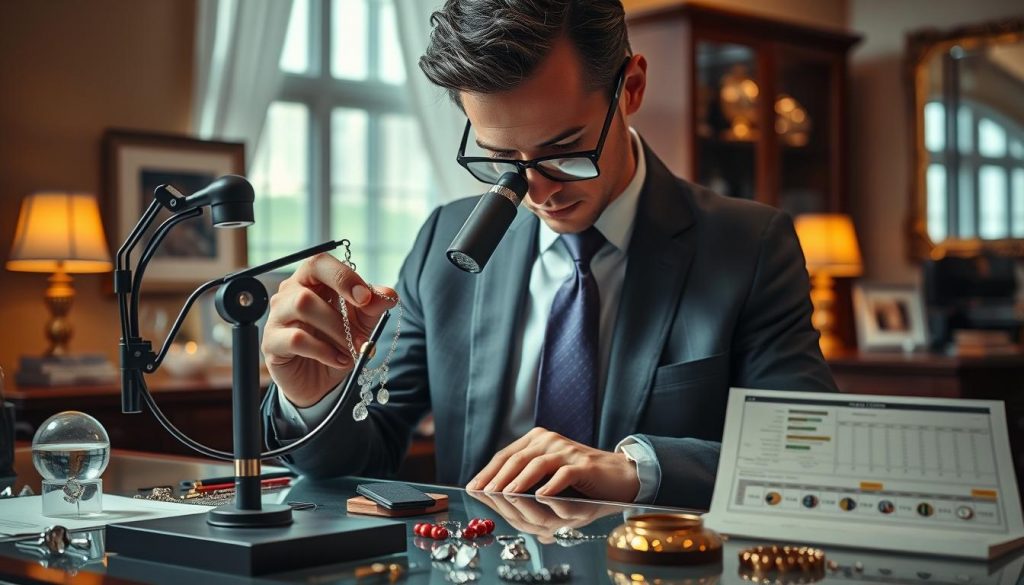
Whether you’re buying, selling, or simply holding onto your jewelry, there are critical times when an appraisal is indispensable. At HonHo Jewelry, we emphasize the importance of timing when it comes to jewelry appraisals. Here are the key moments when you should consider getting your jewelry appraised.
After Purchase or Inheritance
When you acquire new jewelry, either through purchase or inheritance, it’s essential to have it appraised. This initial appraisal establishes the jewelry’s value, helping you understand its worth and make informed decisions about its care and potential future sale. A professional jewelry appraisal at this stage provides a baseline value that can be crucial for insurance purposes and future reference.
For Insurance Purposes
If you plan to insure your jewelry, an appraisal is not just recommended—it’s required. Insurance companies need an accurate assessment of the jewelry’s value to provide adequate coverage. By having your jewelry appraised by a trusted jewelry appraiser, you ensure that you’re not overpaying or underinsuring your valuable items.
Before Selling or Donating
Before selling or donating your jewelry, an appraisal can help you determine its current market value. This information is invaluable when negotiating a sale or understanding the potential tax benefits of a donation. A professional appraisal can also provide documentation that verifies the jewelry’s authenticity and value, making the process smoother and more transparent.
Following Major Market Changes
The value of jewelry can fluctuate based on market conditions, particularly changes in the prices of precious metals and gemstones. If there’s a significant shift in the market, it’s wise to have your jewelry reappraised to understand its current value. This is especially true for pieces containing rare or high-value stones. Consulting with a gemologist or a professional appraiser can help you navigate these changes and make informed decisions about your jewelry.
To illustrate the importance of timing in jewelry appraisals, consider the following scenarios:
- You’re inheriting a family heirloom that needs to be appraised for its historical and monetary value.
- You’re purchasing a new piece of jewelry and want to ensure it’s valued correctly for insurance purposes.
- You’re considering selling or donating jewelry and need to understand its current market value.
By understanding when to get your jewelry appraised, you can make more informed decisions about your possessions. Whether you’re looking to find a gemologist or simply need guidance on the appraisal process, we’re here to help you navigate the complexities of jewelry valuation.
What to Expect During a Professional Jewelry Appraisal
To get the most out of your jewelry appraisal, it’s essential to know what to expect from the experience. A professional appraisal is a thorough evaluation that provides you with a detailed understanding of your jewelry’s value.
The Appraisal Process Explained
During a professional appraisal, the appraiser will conduct a comprehensive examination of your jewelry piece. This involves assessing its materials, condition, and market value. For instance, HonHo Jewelry, a reputable brand in the industry, ensures that their appraisers follow a meticulous process to evaluate each item. The appraiser will consider various factors, including:
- The type and quality of gemstones or metals used
- The craftsmanship and condition of the piece
- Market demand and current trends
- Comparative sales data for similar items
This thorough assessment enables the appraiser to provide an accurate valuation of your jewelry.
Documentation You’ll Receive
After the appraisal, you will receive a detailed report that outlines the findings. This documentation typically includes:
- A description of the jewelry piece, including its materials and characteristics
- The appraised value of the item
- Any relevant certifications or provenance
- Recommendations for insurance, maintenance, or potential resale
Having this documentation is crucial for insurance purposes, estate planning, or if you decide to sell your jewelry in the future.
Time Requirements for Thorough Appraisals
The time needed for a thorough jewelry appraisal can vary depending on several factors, such as the complexity of the piece and the appraiser’s level of expertise. On average, a comprehensive appraisal can take anywhere from 30 minutes to several hours. It’s essential to allocate sufficient time to ensure that the appraiser can conduct a meticulous evaluation.
When searching for a “jewelry appraisal near me” or looking for the “best jewelry appraisers,” consider consulting with a “local jewelry appraiser” who has the necessary expertise and experience to provide a reliable valuation.
Where to Get Jewelry Appraised: Top Options for Quality Valuations
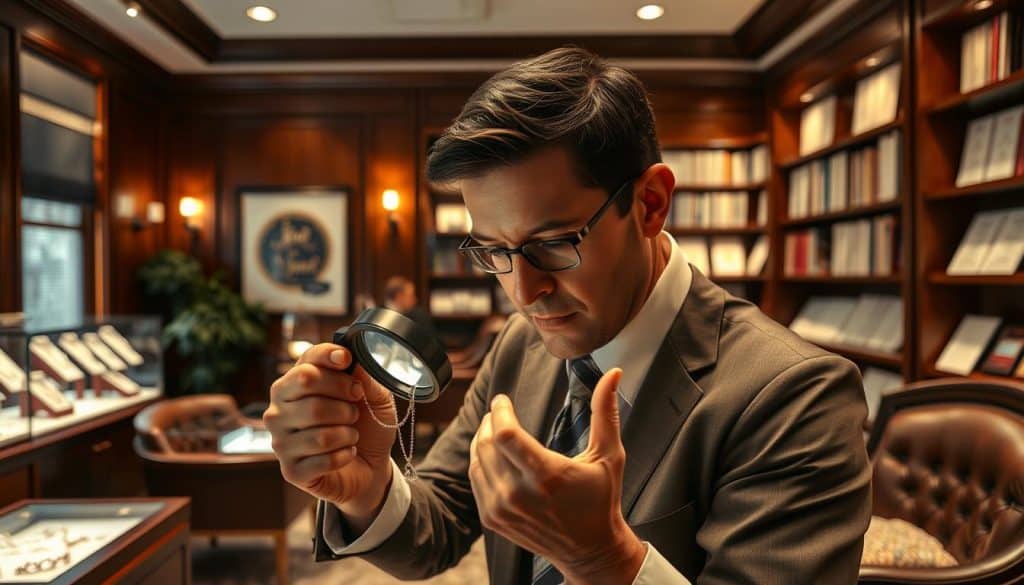
For those seeking a professional jewelry appraisal, several top options stand out for their quality valuations. Whether you’re looking to insure your jewelry, sell it, or simply understand its value, choosing the right appraisal service is crucial.
Local Independent Jewelers
Local independent jewelers often provide appraisal services, leveraging their expertise and knowledge of the local market. They can offer personalized service and may have a deep understanding of the community’s tastes and trends. When selecting a local jeweler for an appraisal, look for certifications and experience.
Chain Jewelry Stores
Chain jewelry stores are another option for getting your jewelry appraised. Many have in-house appraisers or partner with certified professionals. The advantage of using a chain store is their standardized processes and potentially lower costs. However, the appraisal might be less personalized compared to independent jewelers.
Specialized Appraisal Services
Specialized appraisal services focus exclusively on evaluating jewelry and gemstones. These services are often staffed by certified gemologists and appraisers who have extensive experience. Their specialized knowledge can provide a detailed and accurate assessment of your jewelry’s value.
Gemological Laboratories
Gemological laboratories, such as those affiliated with the Gemological Institute of America (GIA), offer authoritative appraisals. These laboratories are equipped with cutting-edge technology and staffed by highly trained gemologists. Their appraisals are considered highly reliable and are often used as a benchmark in the industry.
When deciding where to get your jewelry appraised, consider the type of jewelry, its value, and the purpose of the appraisal. HonHo Jewelry, for instance, is known for its expertise in jewelry manufacturing and appraisal. Ultimately, the best choice will depend on your specific needs and the level of expertise you require.
Finding “Jewelry Appraisal Near Me”: Local Resources

Finding a reputable jewelry appraiser nearby is essential for ensuring your jewelry is valued correctly. When it comes to appraising jewelry, locality can play a significant role in the accuracy and convenience of the process.
We recommend starting your search by utilizing online directories and search tools. These platforms can help you identify local jewelry appraisers and provide valuable information about their services and credentials.
Using Online Directories and Search Tools
Online directories are a great resource for finding local jewelry appraisers. You can use search engines to look for “jewelry appraisal near me” or “local jewelry appraiser” to find relevant results. Some popular online directories include professional associations’ websites and review platforms.
For instance, you can visit the website of the Appraisers Association of America or the National Association of Jewelry Appraisers to find certified appraisers in your area. These organizations often have directories that allow you to search for members by location.
Local Jewelry Associations and Networks
Local jewelry associations and networks are another valuable resource for finding trusted jewelry appraisers. These organizations often consist of professionals who are knowledgeable about the local market and can provide accurate appraisals.
By connecting with local jewelry associations, you can get recommendations for reputable appraisers. For example, the HonJo Jewelry network might have members who are certified appraisers or know of professionals who specialize in jewelry appraisal.
Community Recommendations and Reviews
Community recommendations and reviews can also be incredibly helpful in finding a trusted local jewelry appraiser. You can ask friends, family, or colleagues for recommendations, as they may have had positive experiences with local appraisers.
Additionally, online review platforms like Yelp or Google Reviews can provide insights into the reputation and quality of service of local jewelry appraisers. Look for appraisers with consistently positive reviews and a strong reputation in your community.
By combining these strategies—using online directories, consulting local jewelry associations, and seeking community recommendations—you can find a trusted and competent local jewelry appraiser who meets your needs.
Jewelry Retail Stores That Offer Appraisal Services
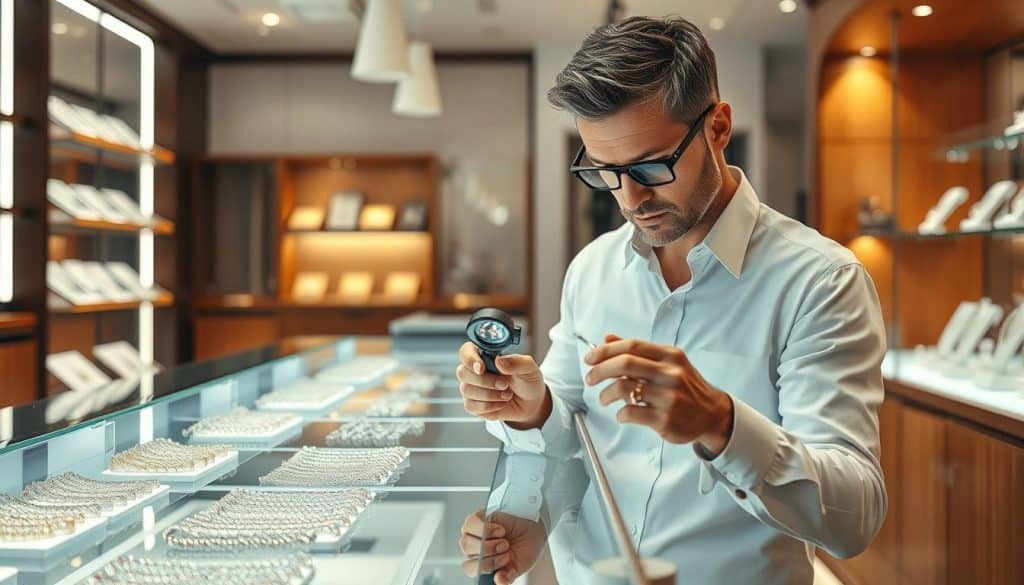
Jewelry retail stores often provide appraisal services, but it’s essential to understand their strengths and limitations. Many consumers turn to these stores for convenience, as they already have a relationship with the retailer. However, it’s crucial to evaluate the quality and reliability of the appraisal services offered.
Major Jewelry Chains and Their Appraisal Policies
Major jewelry chains like HonHo Jewelry offer appraisal services, often conducted by in-house experts. These appraisals can be convenient, but it’s essential to understand the retailer’s appraisal policies and potential biases. Some key considerations include:
- The qualifications and experience of the appraisers
- The methodology used for the appraisal
- Any potential conflicts of interest
- The level of detail in the appraisal report
For instance, some retailers might use a certified jewelry appraiser who has undergone rigorous training and has the necessary expertise to provide an accurate valuation.
Pros and Cons of Retail Store Appraisals
Using a retail store for an appraisal has both advantages and disadvantages. On the positive side, retail stores are often convenient, and the appraisal might be included with the purchase of the jewelry. However, there are potential downsides to consider:
- Potential bias towards selling the jewelry at a higher price
- Limited expertise of the appraiser
- Lack of detailed documentation
It’s also worth noting that some retail stores might outsource their appraisal services to third-party experts, which can affect the consistency of the appraisal quality.
What to Watch Out For
When using a retail store’s appraisal service, there are several red flags to watch out for. Be cautious if the appraiser:
- Seems rushed or unwilling to answer questions
- Does not provide a detailed, written appraisal report
- Is pushing for additional services or sales
To ensure you receive a reliable appraisal, it’s essential to do your research and understand what makes a best jewelry appraiser. Look for professionals with the right credentials and experience in jewelry valuation services.
Working with Certified Jewelry Appraisers

Certified jewelry appraisers bring expertise and credibility to the valuation process. When you work with a certified professional, you can trust that your jewelry is being evaluated based on the latest industry standards and techniques.
Benefits of Hiring Professional Jewelry Appraisers
Hiring a certified jewelry appraiser offers several benefits, including:
- Accurate Valuations: Certified appraisers have the training and experience to provide accurate valuations.
- Industry Knowledge: They stay updated on market trends and industry developments.
- Unbiased Assessments: Professional appraisers provide unbiased assessments, ensuring you receive a fair valuation.
For instance, a certified appraiser from HonHo Jewelry would assess your piece based on its material, craftsmanship, and market demand, providing a comprehensive report.
How to Verify Appraiser Credentials
Verifying an appraiser’s credentials is crucial to ensure you’re working with a qualified professional. Here are some steps to follow:
- Check for certifications from reputable organizations such as the Gemological Institute of America (GIA) or the American Society of Appraisers (ASA).
- Look for membership in professional associations, which often require adherence to ethical standards.
- Review their experience, particularly in appraising items similar to yours.
Finding Reputable Independent Appraisers
Finding a reputable independent appraiser involves some research. You can start by:
- Asking for referrals from jewelers, estate attorneys, or other professionals in the industry.
- Checking online directories that list certified appraisers.
- Reviewing their professional background and client testimonials.
By taking these steps, you can confidently select a certified jewelry appraiser who will provide a reliable and accurate appraisal of your jewelry.
Online Jewelry Appraisal Services: Pros and Cons
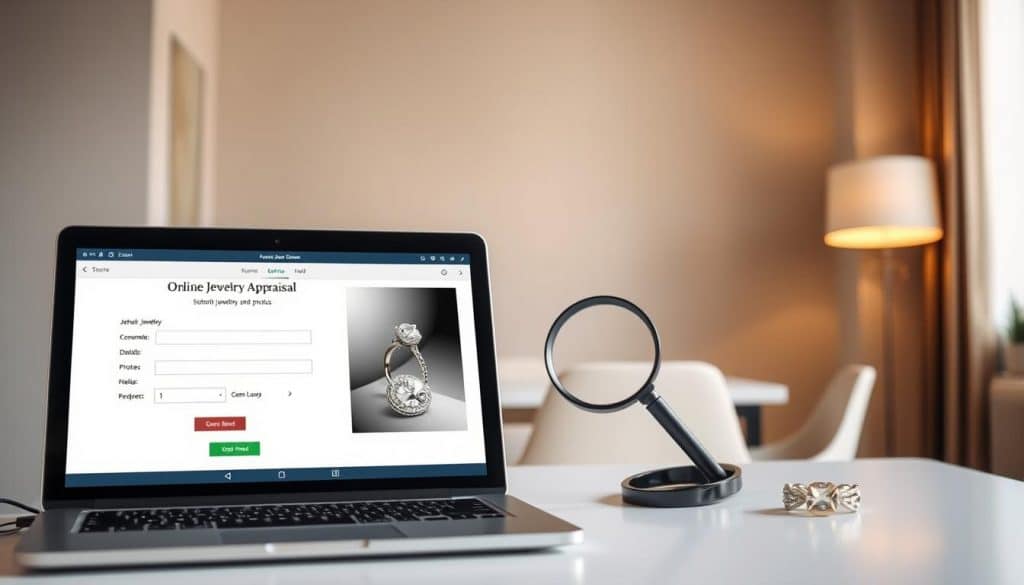
As technology advances, online jewelry appraisal services are emerging as a viable alternative to traditional in-person appraisals. This shift offers both convenience and accessibility for individuals seeking to value their jewelry.
How Virtual Appraisals Work
Online jewelry appraisal services typically involve submitting detailed photographs and descriptions of the jewelry piece to a professional appraiser. This process allows for a preliminary valuation without the need for a physical meeting. Some platforms, like HonHo Jewelry, offer advanced online appraisal tools that utilize AI technology to provide initial valuations.
We have found that the virtual appraisal process is not only convenient but also efficient, saving time for both the appraiser and the client. However, it’s essential to note that the accuracy of the appraisal heavily relies on the quality of the submitted information.
Reliability of Online Valuations
The reliability of online jewelry valuations can vary significantly depending on the platform and the expertise of the appraisers. While some online services employ certified gemologists, others may lack the necessary credentials. It’s crucial to research the credibility of the appraisal service before proceeding.
We recommend verifying the qualifications of the appraisers and understanding their methodology to ensure that the valuation is accurate and reliable. A reputable online appraisal service should provide transparent information about their appraisers’ credentials and the appraisal process.
Top Online Appraisal Platforms
Several online platforms offer jewelry appraisal services, each with its unique features and benefits. Here is a comparison of some top online appraisal platforms:
| Platform | Appraiser Credentials | Turnaround Time | Cost |
|---|---|---|---|
| HonHo Jewelry | Certified Gemologists | 3-5 Business Days | $50-$100 |
| Jewelry Appraisal Co. | GIA Certified | 5-7 Business Days | $75-$150 |
| Gemstone Valuation | Experienced Appraisers | 7-10 Business Days | $100-$200 |
When selecting an online appraisal service, consider factors such as the appraiser’s credentials, turnaround time, and cost. It’s also essential to read reviews and understand the platform’s policies regarding revisions and customer support.
Auction Houses and Their Jewelry Valuation Services
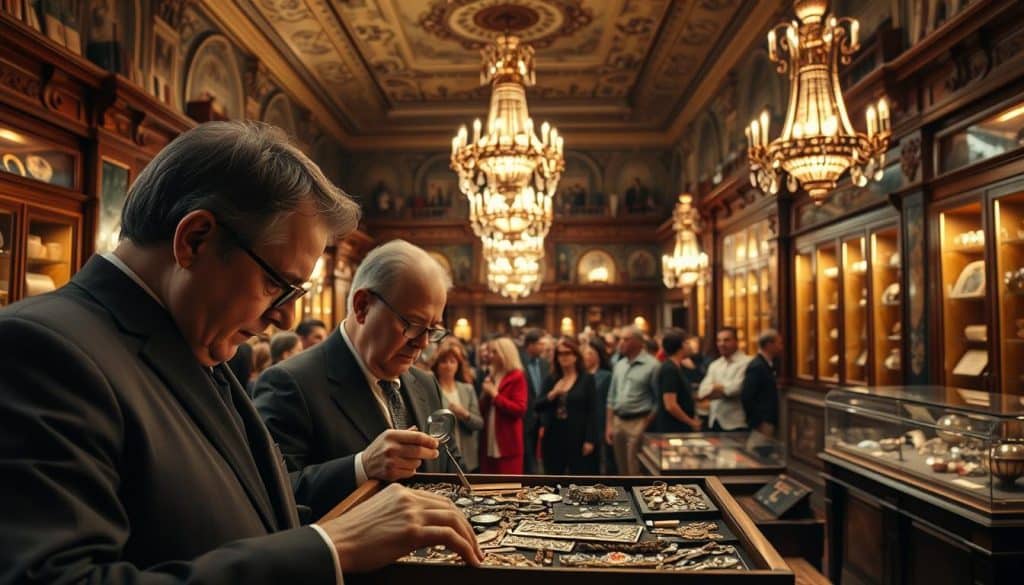
For individuals owning unique or high-end jewelry, auction houses provide a specialized appraisal service that combines market knowledge with a deep understanding of the jewelry industry. At HonHo Jewelry, we recognize the importance of accurate valuations, especially when it comes to rare or high-value items.
When to Consider an Auction House Appraisal
Auction houses are particularly suited for appraising jewelry that is rare, of high value, or historically significant. If you’re considering selling your jewelry at an auction, having it appraised by the same experts can provide a more accurate valuation. Additionally, if you’re looking to insure your jewelry, an auction house appraisal can offer a credible assessment of its value.
Notable Auction Houses for Jewelry Appraisals
Several auction houses stand out for their expertise in jewelry appraisals. These include:
- Christie’s
- Sotheby’s
- Bonhams
These houses have a global presence and are known for their rigorous appraisal processes.
| Auction House | Specialization | Global Presence |
|---|---|---|
| Christie’s | High-end jewelry, rare gemstones | Yes |
| Sotheby’s | Luxury jewelry, historical pieces | Yes |
| Bonhams | Jewelry with historical significance | Yes |
What Sets Auction House Appraisals Apart
Auction house appraisals are distinguished by their depth of market knowledge and the expertise of their appraisers. These professionals have access to a vast array of data on past sales, current market trends, and the provenance of items, allowing them to provide highly accurate valuations.
Key benefits of auction house appraisals include:
- Expertise in rare and high-value items
- Access to comprehensive market data
- Credibility for insurance and sales purposes
By choosing an auction house for your jewelry appraisal, you’re leveraging the collective expertise of professionals who are at the forefront of the jewelry industry. Whether you’re looking to sell, insure, or simply understand the value of your jewelry, an auction house appraisal can provide the insights you need.
Finding a Gemologist for Specialized Jewelry Assessment
To get an accurate appraisal of your jewelry, it’s vital to consult with a professional gemologist. Gemologists play a crucial role in the appraisal process by providing specialized insights into the value of various gemstones.
The Role of Gemologists in Jewelry Appraisal
Gemologists are experts trained in the identification and evaluation of gemstones. Their knowledge extends to understanding the characteristics, quality, and market demand for different types of gemstones, which is essential for an accurate jewelry appraisal.
GIA-Certified Gemologists
We recommend working with GIA-certified gemologists, as they have undergone rigorous training and have demonstrated expertise in gemology. The GIA (Gemological Institute of America) is a renowned organization that sets standards for gemstone evaluation worldwide.
GIA certification is a mark of excellence, indicating that the gemologist has a deep understanding of gemstone identification, grading, and valuation.
Specialized Expertise for Different Gemstones
Different gemstones require specialized knowledge for accurate appraisal. For instance, colored gemstones like rubies, emeralds, and sapphires have different evaluation criteria compared to diamonds.
When searching for a gemologist, look for those with experience in appraising the type of gemstone you own, such as HonHo Jewelry’s team of experts who have extensive knowledge in various gemstones.
By understanding the role of gemologists and their specialized expertise, you can make informed decisions when seeking a professional jewelry appraisal. Whether you’re looking to insure your jewelry, sell it, or simply understand its value, a gemologist’s insights are invaluable.
The Cost of Professional Jewelry Appraisal Services
Understanding the cost of professional jewelry appraisal services is crucial for making informed decisions about your valuable pieces. At HonHo Jewelry, we recognize the importance of transparency in pricing for appraisal services.
Average Pricing Structures
The cost of jewelry appraisals can vary widely. On average, you can expect to pay between $50 to $200 per item for a basic appraisal. However, more complex pieces or those requiring specialized knowledge may incur higher costs.
- Basic Appraisals: $50-$100 per item
- Complex Appraisals: $100-$500 per item
- Specialized Appraisals: $200-$1,000 or more per item
Factors That Affect Appraisal Costs
Several factors influence the cost of a jewelry appraisal, including:
- The type and complexity of the jewelry piece
- The appraiser’s level of expertise and certification
- The location where the appraisal is conducted
- The purpose of the appraisal (e.g., insurance, estate settlement)
For instance, a simple diamond ring might be appraised at a lower cost compared to a complex, antique piece with multiple gemstones.
Red Flags in Pricing
When seeking a jewelry appraisal, be wary of appraisers who:
- Charge significantly lower fees than the average
- Have unclear or undisclosed pricing structures
- Pressure you to make a decision quickly
At HonHo Jewelry, we advise clients to research and compare prices among reputable appraisers to ensure they receive a fair and accurate valuation.
Essential Credentials to Look for in Trusted Jewelry Appraisers
A professional jewelry appraisal starts with verifying the appraiser’s credentials. When selecting an appraiser, it’s vital to consider their certifications, experience, and reputation. At HonHo Jewelry, we emphasize the importance of working with a certified jewelry appraiser who can provide an accurate and unbiased valuation.
Important Certifications and Organizations
One of the key indicators of a trusted jewelry appraiser is their certification from reputable organizations. Look for appraisers certified by:
- The Gemological Institute of America (GIA)
- The American Society of Appraisers (ASA)
- The National Association of Jewelry Appraisers (NAJA)
These certifications ensure that the appraiser has undergone rigorous training and adheres to high standards of professionalism. A trusted jewelry appraiser will be transparent about their certifications and the methodologies they use.
Experience and Specialization Considerations
Experience is another crucial factor when choosing a jewelry appraiser. An appraiser with extensive experience in the industry is more likely to provide an accurate valuation. Consider the following:
- Years of experience in jewelry appraisal
- Specialization in specific types of jewelry or gemstones
- Knowledge of current market trends
A professional with a strong background in jewelry appraisal can make a significant difference in the valuation process. At HonHo Jewelry, we recommend seeking appraisers who have a proven track record in handling complex appraisals.
Verifying an Appraiser’s Reputation
Finally, verifying an appraiser’s reputation is essential. You can do this by:
- Checking online reviews and testimonials
- Asking for references from previous clients
- Consulting with professional associations for recommendations
A reputable appraiser will have a strong professional network and positive feedback from clients. By choosing a professional jewelry appraisal service, you ensure that your jewelry is valued accurately and fairly.
How to Prepare Your Jewelry for an Appraisal
Before presenting your jewelry for appraisal, there are several steps you can take to enhance the process. Proper preparation, including cleaning and gathering relevant documentation, can significantly impact the accuracy of the valuation. At HonHo Jewelry, we emphasize the importance of being prepared to ensure that your jewelry is appraised correctly.
Cleaning and Maintenance Before Appraisal
Cleaning your jewelry before an appraisal is essential, but it must be done carefully. We recommend gently cleaning your jewelry using appropriate methods for the specific type of gemstone or metal. For instance, a soft cloth can be used for most jewelry pieces, while ultrasonic cleaners might be suitable for certain types of stones. However, it’s crucial to avoid harsh chemicals or methods that could damage the jewelry.
Tips for Cleaning:
- Use a soft, lint-free cloth to wipe down the jewelry.
- Avoid using harsh chemicals or abrasive materials.
- For intricate pieces, consider consulting a professional jeweler for cleaning.
Documentation to Bring
When getting your jewelry appraised, bringing the right documentation can make a significant difference. We advise bringing any certificates of authenticity, receipts, or previous appraisals. This documentation helps the appraiser understand the jewelry’s history, materials, and value.
Essential Documents Include:
- Receipts or proof of purchase.
- Previous appraisals or certificates.
- Any historical or provenance information.
Questions to Ask Your Appraiser
Engaging with your appraiser and asking the right questions can provide valuable insights into your jewelry’s value and characteristics. We suggest asking about the appraisal methodology, the factors that influence the valuation, and any recommendations for maintenance or insurance.
Key Questions to Ask:
- What methodology do you use for appraisals?
- How do market fluctuations affect the jewelry’s value?
- Are there any specific insurance or maintenance recommendations?
By following these steps and working with a certified jewelry appraiser, you can ensure that your jewelry is accurately valued and properly cared for. At HonHo Jewelry, we’re committed to helping you navigate the appraisal process with confidence.
Common Mistakes to Avoid When Getting Jewelry Appraised
When it comes to jewelry appraisals, avoiding common mistakes is crucial for obtaining an accurate valuation. At HonHo Jewelry, we understand the intricacies involved in the appraisal process and the importance of steering clear of potential pitfalls.
Accepting Appraisals from Sellers
One of the most significant mistakes is accepting an appraisal from the seller without verifying their credibility. Sellers may provide appraisals that benefit their interests, potentially leading to inaccurate valuations. It’s essential to seek a second opinion from a trusted, independent jewelry appraiser to ensure fairness.
Skipping Research on the Appraiser
Failing to research the appraiser’s qualifications and experience can lead to subpar service. We recommend checking for certifications from reputable organizations and reviewing their professional background to ensure you’re working with a qualified expert.
Misunderstanding Appraisal Values
Misunderstanding the different types of appraisal values (e.g., retail replacement value vs. fair market value) can lead to confusion. It’s crucial to understand what type of appraisal you’re receiving and how it applies to your situation, whether for insurance purposes or potential sale.
Failing to Get Regular Updates
Jewelry values can fluctuate over time due to market changes. Failing to update your appraisal regularly can result in outdated valuations. We advise scheduling periodic reappraisals to keep your jewelry’s value current and accurate.
By avoiding these common mistakes, you can ensure a more accurate and reliable jewelry appraisal. At HonHo Jewelry, we’re committed to providing expert guidance throughout the appraisal process.
How Often Should You Update Your Jewelry Valuation?
Updating your jewelry valuation is crucial in today’s volatile market. The value of jewelry can fluctuate due to various factors, including changes in market demand, the rarity of gemstones, and economic conditions. Regular updates ensure that your jewelry’s value is accurately reflected.
Market Fluctuations and Value Changes
Market fluctuations can significantly impact the value of your jewelry. For instance, the price of gold and other precious metals can vary, affecting the overall value of your piece. Additionally, changes in fashion trends can influence the demand for certain types of jewelry, thereby impacting their value.
We recommend keeping an eye on market trends and having your jewelry reappraised periodically. HonHo Jewelry, for example, suggests that clients review their jewelry valuations every few years or when significant market changes occur.
Insurance Requirements for Reappraisals
Insurance companies often require updated appraisals to ensure that your jewelry is adequately covered. The frequency of these updates can vary depending on the insurer and the type of jewelry. Generally, it’s advisable to check with your insurance provider to understand their specific requirements.
Having regular appraisals not only helps in maintaining adequate insurance coverage but also ensures that you have a clear understanding of your jewelry’s current value.
Signs It’s Time for a New Appraisal
There are several signs that indicate it’s time for a new appraisal. These include:
- Significant changes in market conditions
- Alterations or repairs made to the jewelry
- Changes in your insurance policy
- A considerable passage of time since the last appraisal
If you’re considering selling or donating your jewelry, a current appraisal is essential to determine its fair market value.
Here is a summary of when to update your jewelry valuation:
| Reason for Update | Frequency | Notes |
|---|---|---|
| Market Fluctuations | Every 2-3 years | Keep an eye on market trends |
| Insurance Requirements | As required by insurer | Check with your insurance provider |
| Jewelry Alterations | After alterations | Ensure the appraisal reflects changes |
By staying informed and having regular appraisals, you can ensure that your jewelry valuation is accurate and up-to-date. This not only helps in insurance and potential sales but also gives you peace of mind knowing the true value of your possessions.
Conclusion: Making the Most of Your Jewelry Appraisal
By understanding the appraisal process and choosing the right appraiser, individuals can ensure they receive accurate and valuable insights into their jewelry’s worth. When seeking a professional appraisal, consider visiting local independent jewelers or specialized appraisal services to find the best jewelry appraisers in your area.
Utilizing online directories and search tools can help you locate “jewelry appraisal near me” and connect with reputable professionals. At HonHo Jewelry, we emphasize the importance of getting your jewelry appraised by a certified expert to determine its true value.
Whether you’re looking to insure, sell, or simply understand the value of your jewelry, a professional appraisal is essential. By following the guidelines outlined in this article, you can make informed decisions and ensure you’re getting the most out of your jewelry appraisal experience, knowing where to get jewelry appraised is crucial.
FAQ
What is a jewelry appraisal, and why is it necessary?
How often should I update my jewelry appraisal?
What are the different types of jewelry appraisals?
Where can I get my jewelry appraised?
How do I find a certified jewelry appraiser?
What should I expect during a jewelry appraisal?
How much does a jewelry appraisal cost?
Can I get my jewelry appraised online?
What are the benefits of working with a certified gemologist?
How do I prepare my jewelry for an appraisal?
Related Posts
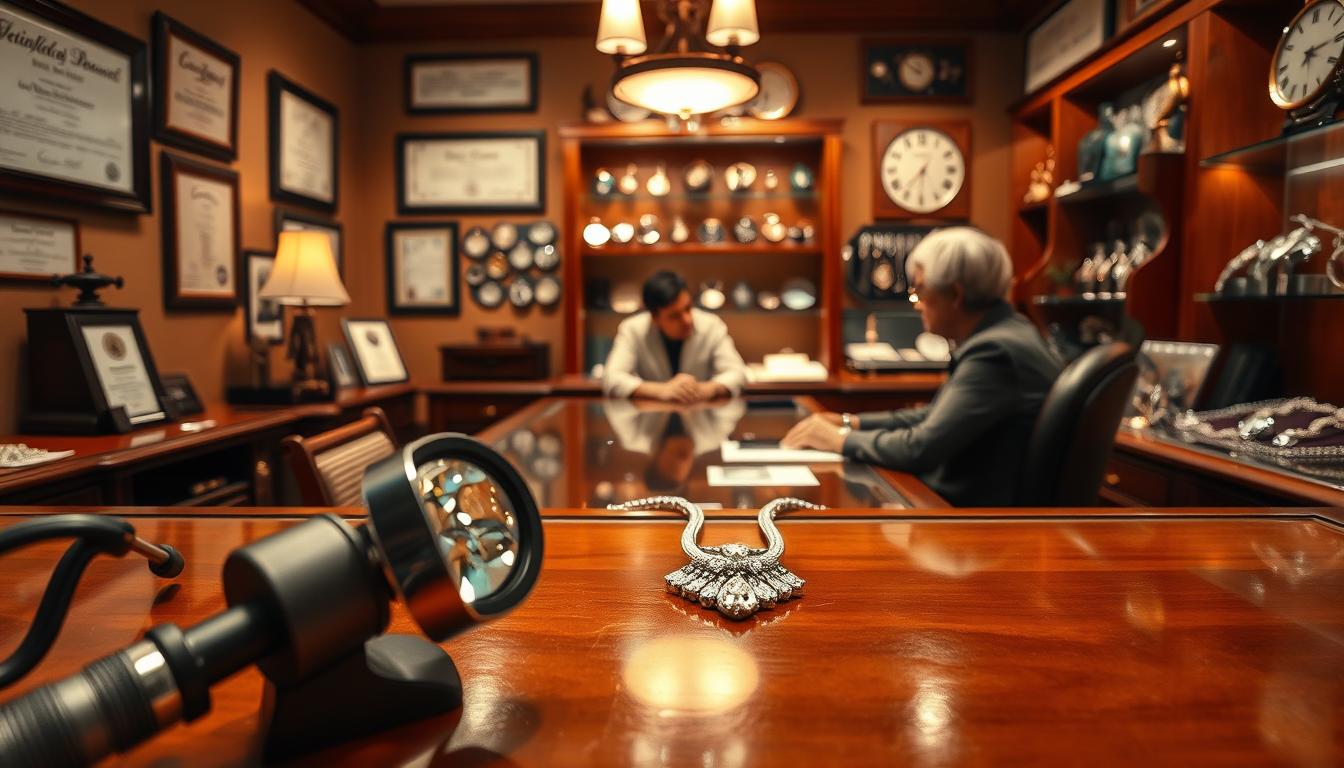
Where to Get Jewelry Appraised: Expert Tips
At HonHo Jewelry, we understand the significance of accurate jewelry valuations. Determining the value of jewelry is crucial, especially for insurance purposes or when inheriting
